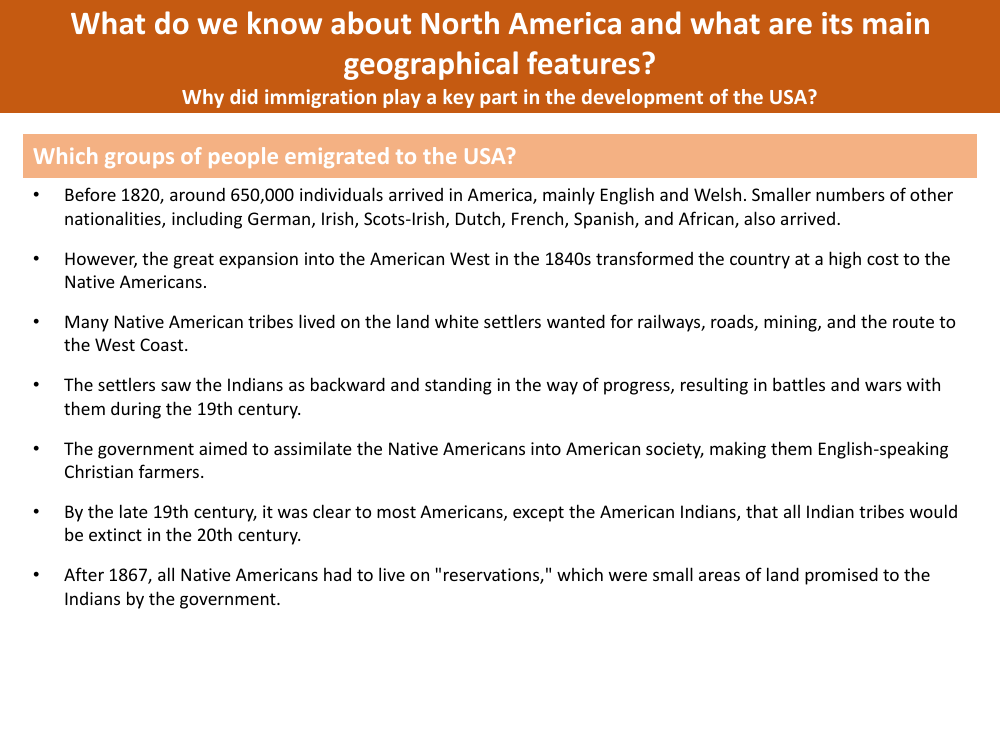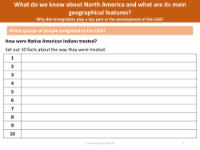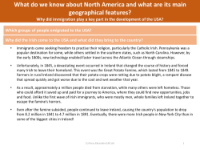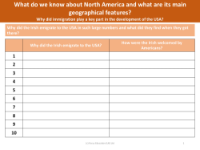Which groups of people emigrated to the USA? - Info sheet

Geography Resource Description
The history of immigration to the USA is marked by a diverse array of groups seeking new lives on its shores. Before the year 1820, approximately 650,000 individuals had made the journey, predominantly from England and Wales. Alongside these major groups, there were smaller contingents from Germany, Ireland, Scots-Irish, the Netherlands, France, Spain, and Africa. The pursuit of expansion during the 1840s brought many settlers into the American West, a movement that had significant and detrimental effects on the Native American populations who already inhabited these lands. Settlers often viewed Native Americans as obstacles to progress, leading to numerous conflicts throughout the 19th century as the government sought to assimilate these indigenous peoples into American society.
The Dawes Act of 1887 represented a pivotal moment in the treatment of Native Americans, as it aimed to break up reservations into individual allotments, ostensibly to encourage the adoption of farming and assimilation into American culture. While heads of families were promised 160 acres and individuals 80 acres, with the prospect of US citizenship after 25 years, the Act ultimately undermined tribal structures and restricted the freedom of Native Americans. The consequences were dire: disease, poverty, and the loss of tribal lands to white settlers, as much of the "surplus" land from these allotments was opened up to non-tribal members. By 1921, it became evident that the majority of Native American lands were being farmed by outsiders, and although reservations continued to exist, the small size of the allotments rendered them ineffective for sustainable agriculture. The government's management of reservation life aimed to eradicate the traditional ways of Native American life, leaving a legacy of struggle and dispossession.






